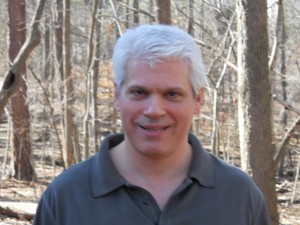We’re proud when we have a bumper harvest like the ones we had this year with sweet potatoes and muscadines. And in our happiest moments we like to think our work as subsistence farmers is a tiny part of a gentle global revolution that could help to feed the world’s hungry people.
 But then along comes Russ Hopfenberg, who tosses a stink bomb into the food stores in our root cellar and strolls nonchalantly away. Dr Hopfenberg says there’s simply no way we can “feed the world’s hungry people” by producing more food. His is a difficult argument, perhaps one of the most difficult we’ve confronted on Longleaf Breeze, so if you think you understand it quickly you probably don’t. Listen to him lay out what he says is an essential truth about food and hunger that we humans seem unable to grasp, namely that homo sapiens is a species like other species and that we are subject to the same behavior patterns as other species.
But then along comes Russ Hopfenberg, who tosses a stink bomb into the food stores in our root cellar and strolls nonchalantly away. Dr Hopfenberg says there’s simply no way we can “feed the world’s hungry people” by producing more food. His is a difficult argument, perhaps one of the most difficult we’ve confronted on Longleaf Breeze, so if you think you understand it quickly you probably don’t. Listen to him lay out what he says is an essential truth about food and hunger that we humans seem unable to grasp, namely that homo sapiens is a species like other species and that we are subject to the same behavior patterns as other species.
That means that when we have ample food to eat we reproduce in quantity, and when food is in shorter supply we reproduce at a lower rate. Our efforts to farm more and more land to feed more and more people, he says, lock us into a vicious cycle of destruction and constantly increasing population. The worst thing we can do, Russ says, is to convert diverse forest land to monocrop production, because this weakens the diversity and resilience of the biosphere and yet does nothing to reduce hunger.
The podcast runs 28 minutes, far longer than our 20-minute target, but we don’t apologize for that. If it sounds on this podcast like Amanda and I are struggling with what it might mean, good. We are. Perhaps you are as well.
Listen – 28:03
Here’s Russ’s web site, PanEarth.org.
Here is a more scholarly version of his argument, a paper entitled Human Carrying Capacity Is Determined by Food Availability.
As we were preparing to publish this podcast, an e-mail update from Russ arrived with a fresh answer to one of the questions we posed for him:
Hi Lee & Amanda,
I wanted to follow up about one of your questions. You asked what farmers can do to help and I had a bit of a difficult time answering. It was only later that I realized that the answer was “right in front of my face” — literally. What the two of you are doing is what farmers can do right now. Farmers are on the front line of food production and witness daily the food-population dynamics of plants and animals. Farmers are in a great position to help others understand food-population dynamics. And since farmers are producing food for people, they can help bridge the connection to human food-population dynamics.
Thanks again for inviting me to participate in your podcast. It was a pleasure to talk to both of you.
All my best,
Russ